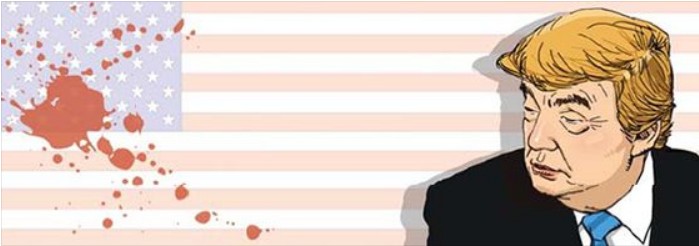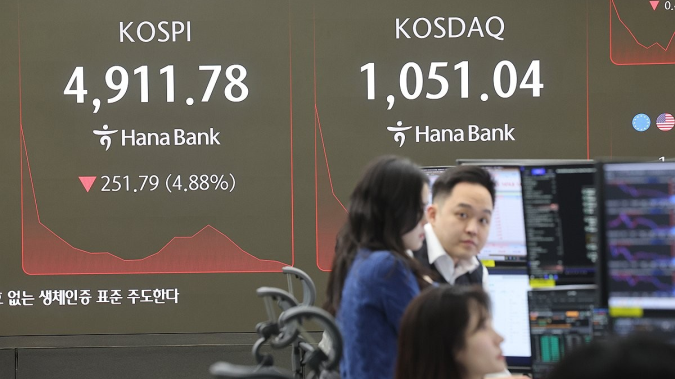2026.02.24 기상청GO
[International News] Embracing a Narrative of American Carnage
| 07-07 18:44
By Alexander Lee

As the U.S. Presidential election draws nearer, with just four months remaining until November 3, many in Washington remain tight-lipped about their prospects. However, current indicators suggest that incumbent President Donald Trump faces an uphill battle, with several opinion polls predicting his defeat.
According to an analysis of seven polls conducted from June 22 to 30 by Real Clear Politics, Democratic presidential candidate Joe Biden received a 49.6 percent rating, 8.7 percent ahead of Trump’s 40.9 percent. In two polls conducted by Monmouth University and USA Today, Biden led Trump by 12 percent — 53 percent to 41 percent.
The COVID-19 pandemic has significantly impacted the election landscape, transforming what the Trump administration once hailed as an economic boom into a potential liability. Since March, approximately 48.4 million U.S. citizens have filed for unemployment benefits. And while some have returned to work, tens of millions remain concerned about their ability to provide for their families, as evidenced by the long lines at meal distribution centers across the country. This economic uncertainty could drive voters away from the current administration.
Despite the unfavorable conditions, experts remain cautious about predicting Trump’s defeat. The President has a history of defying the odds, as seen in his 2016 victory over Democratic candidate Hillary Clinton. In that election, although he lost the popular vote, Trump secured more electoral votes, ultimately winning the presidency. Thus, while some experts are optimistic about Biden’s chances, others are hesitant to make definitive predictions.
Two significant obstacles stand in the way of Trump’s reelection: a potential second wave of COVID-19 and the growing protests against racial discrimination. Yet, Trump believes he knows how to secure victory. He has reverted to a strategy similar to the one he employed in 2016, focusing on the theme of “American carnage.”
Trump has rallied his supporters by claiming that foreign “looters” are responsible for taking jobs from Americans, committing crimes, and pushing U.S. businesses to relocate abroad. These claims have fueled his policies, such as the trade war with China, the construction of walls on the Mexican border, and the withdrawal of U.S. forces stationed abroad.
In recent months, Trump has expanded his definition of those committing 'carnage' to include his political opponents. In his Independence Day speech, he denounced the 'radical left,' claiming, 'We will never allow an angry mob to tear down our statutes, erase our history, indoctrinate our children or trample our freedoms.'
As the election draws nearer, the world watches closely to see whether Trump’s strategy will prove to be a hit, as it was in 2016, or if it will fall flat, leading to a change in leadership at a critical time in American history.
Reporter Alexander Lee alexanderlee_24@newsyn.co.kr
- 주요뉴스 뉴스속보
서비스안내
상호: 영남매일신문(주) | 사업자등록번호: 506-81-85807 | 대표: 강호성 | 신문등록번호 : 부산 가00021 / 인터넷신문등록번호 : 부산, 아00272
전화: 051-867-3909 | 팩스: 051-861-3463 | 주소: 부산광역시 연제구 중앙대로 1111, 1701호 (연산동, 위드타워)
copyright ⓒ 2015 newsyn.co.kr All right reserved. | web@newsyn.co.kr


 즐겨찾기추가
즐겨찾기추가

 RSS
RSS








